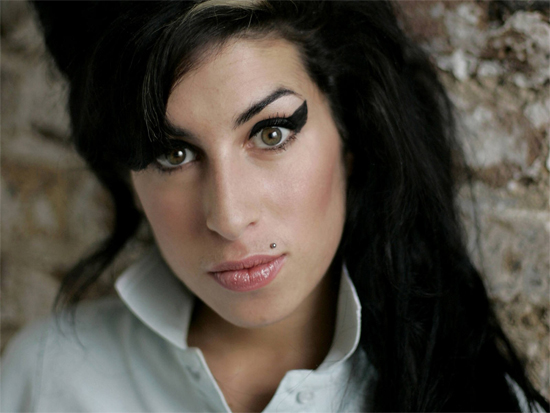It wasn’t a surprise, but it was still a shock: despite the gallows humour that would follow whenever her name cropped up in conversation, against all the evidence of the past half decade, I assumed the twin immortalities of youth and fame would somehow see Amy Winehouse through – myths, it turned out, that missed the point as much as all of the tortured artist baggage that weighed her image down when she was alive. Fucked-up artists, celebrities and musicians are plentiful, but dying young is not the norm. Most pull through – and, whether because of a fundamental sense of hope or because it justified the voyeuristic, unhelping gaze on her desperate flailing around, it was easy to think Winehouse would too. I wanted to hear the reggae album she was rumoured to have recorded. Age, one imagines, would have magnified her best qualities: the sharp, bawdy wit, the willingness to run her mouth about anyone or anything, the cackle with which she relayed anecdotes or jokes. She would have made an amazing old woman: you can picture her holding court at the Groucho Club among the young, wide-eyed artists of 2045, a nonpareil raconteuse reeling off stories of her wild salad days.
I first encountered Amy Winehouse’s voice as the editor of my student magazine back in 2003, listlessly sorting through a box of sad-looking promo CDs. The front cover of Frank looked unprepossessing, unpromising. It was an intervention from the magazine’s film editor that saved it from the reject pile. "Oh, that girl went to my school. She’s actually good. You like R&B, right? I think you’d like it." He was right; it was a revelation. The jazz influences and retro arrangements sounded unlike anything in the charts then, let alone allied to such street-smart, forthright, often explicit sentiments. The voice was big, distinctive, charismatic. But it was the personality of this 19-year-old London girl that kept busting its way out of the speakers, skewering bullshit wherever it was found, but brave enough to be uncomfortably vulnerable too. She sneered at ex-boyfriends relegated to fuck-buddy status: "Oh, it’s you again. Sorry, this isn’t a reunion." She leered unashamedly and lasciviously when the mood took her: "My weakness for the other sex, every time his shoulders flex." She dropped references from Badu to Freud, and when she took aim at WAG culture on ‘Fuck Me Pumps’, it was merciless – but with just enough understanding to avoid coming off as a Mean Girl. In short, she sounded full of life.
The voice is what tends to be focused on when people talk about Winehouse’s talent. Understandable, perhaps: it’s an undeniable instrument, and even sceptics begrudgingly acknowledge its quality. What was most interesting wasn’t Winehouse’s technical prowess, though – nor even the blood and guts she poured into her songs that made her arguably the last unashamedly cathartic singer of an age in which heart-on-sleeve emotion tends to be deemed uncool. Her voice was a contradiction in itself – it was a mannerism that seemed totally natural, a mimicry of a "classic" mode of singing that fit Winehouse just right. (It was interesting to note, back in 2006-07, around the time of their near-simultaneous breakthroughs, how the performative affectations of Winehouse and Lily Allen took them in opposite directions: the Bedales-educated Allen coming over all Mockney urchin on record, while the Winehouse smoothed her unmistakeable North London tones into the "classier" tones of a classic soul singer.)
Winehouse was an excellent, moving singer – but she was a great songwriter. The sheer craft of her records is what still blows me away, what keeps me hearing new things in them even over half a decade on, and it’s this talent that cut through any shtick she tried on. The way she’d use the music as a red herring, a distraction away from its emotional core, is astonishingly effective: the stateliness of ‘Take The Box’, for instance, belying the frantic, screaming, crying desperation of the actual words. Or the brittle stiff upper lip of ‘Tears Dry On Their Own’, its perky tempo and sha-la-la backing vocals making it as discomfiting a listen as her straightforwardly doomed balladry. Rehab was the most famous example of this, of course: so as to "have everyone think I’m on the mend," Winehouse made it an irresistibly jaunty party ditty and played the role of entertainer. She introduced signifiers of theatricality deliberately, singing the lyrics with a shrug and a wink and a pretense of distance, and it was only when her voice cracked on that one devastating line in the bridge – "I just – ooh, I just need a friend" – that the artifice was itself revealed to be fake.
The day after Winehouse died, it was revealed that her phone had been routinely hacked by tabloid journalists to obtain, among other things, details of her visits to rehab: more and more, it seems as though every breaking headline is part of the same story, one that at its core is about how we expect other people should be treated on our behalf. It must have seemed ironic to her: so intent on excavating every darkest recess of her emotions on record, it still wasn’t enough.



